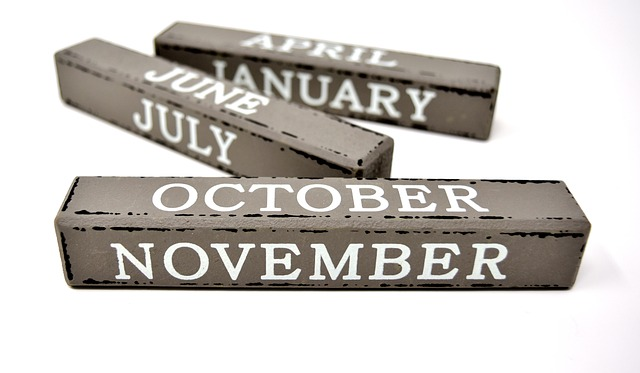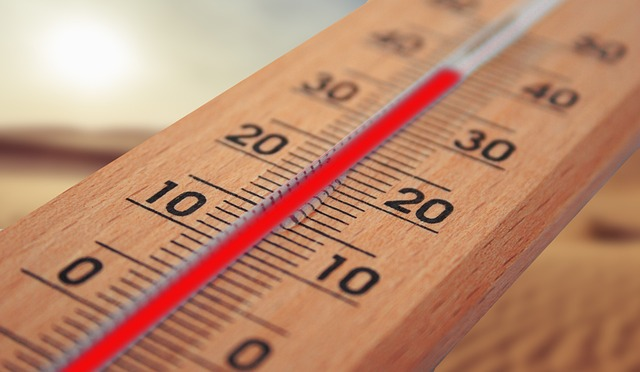Knowing the weather for each month can help you make the most of your Ireland trip. Ireland's weather from January to December varies with temperature changes, rainfall patterns, and seasonal highlights. Whether you're dreaming of winter landscapes or summer festivals, understanding the monthly weather will help you pack appropriately and plan your adventures with confidence. Explore the unique climate of Ireland and get ready for a memorable journey through its breathtaking scenery.
During my visit last spring, I was enchanted by the vibrant greenery and mild temperatures, making it the perfect time to explore the countryside and historic sites.

Ireland Weather By Month: Complete Guide from January To December
Ireland experiences a varied climate throughout the year, offering different experiences for travelers each month. January and February bring cold temperatures and frequent rainfall, while March sees milder weather with longer periods of sunshine. April marks the arrival of spring, with temperatures starting to climb and the landscape bursting into bloom.
May brings even warmer temperatures and fewer rain showers, perfect for outdoor exploration. June through August is summer season, with warm temperatures, plenty of sunshine, and ideal conditions for outdoor activities. September transitions into autumn, with cooler temperatures and increasing rainfall.
October and November bring cooler weather and more frequent rain showers, while December sees winter weather with occasional snowfall and festive holiday celebrations. Whether you prefer the charm of winter or the vibrancy of summer, Ireland has something to offer year-round.
Visiting Cork? Here are Best Things to do in Cork Ireland: Awesome Places To Visit, Outdoor Activities to Do

| Month | Weather Summary | Short Description |
|---|---|---|
| January | Average Temperature: 5°C, Average Rainfall: 70mm | Cold and wet, often cloudy |
| February | Average Temperature: 6°C, Average Rainfall: 55mm | Cold with occasional sunshine |
| March | Average Temperature: 7°C, Average Rainfall: 60mm | Gradually warming, frequent rain |
| April | Average Temperature: 9°C, Average Rainfall: 55mm | Cool with spring showers |
| May | Average Temperature: 12°C, Average Rainfall: 50mm | Mild and pleasant, less rain |
| June | Average Temperature: 15°C, Average Rainfall: 60mm | Warm and sunny, occasional rain |
| July | Average Temperature: 17°C, Average Rainfall: 65mm | Warmest month, mostly dry |
| August | Average Temperature: 17°C, Average Rainfall: 75mm | Warm with summer showers |
| September | Average Temperature: 14°C, Average Rainfall: 70mm | Cooling down, frequent rain |
| October | Average Temperature: 11°C, Average Rainfall: 80mm | Cool and wet, autumnal |
| November | Average Temperature: 7°C, Average Rainfall: 85mm | Chilly with increasing rain |
| December | Average Temperature: 5°C, Average Rainfall: 90mm | Cold and rainy, often overcast |
Ireland Weather In January
January in Ireland typically brings cold temperatures and frequent rainfall. Daytime temperatures average around 7°C (45°F), with nighttime temperatures dropping to around 3°C (37°F). It's advisable to pack warm layers and waterproof clothing if you're planning to visit during this month.
Ireland Weather In February
February continues the trend of chilly, weather in ireland, with temperatures similar to January. Rainfall remains common, so be prepared for wet conditions if you're traveling to Ireland in February. Despite the weather, February can still be a charming time to visit, with fewer crowds and the opportunity to experience cozy pubs and traditional Irish hospitality.
Visiting Dublin? Here are Best Things To Do In Dublin Ireland: In Depth Guide for 2024

Ireland Weather In March
As spring begins to emerge, March brings slightly milder temperatures to Ireland. Daytime highs typically reach around 9°C (48°F), with nighttime lows hovering around 4°C (39°F). While rainfall is still prevalent, there are often longer periods of sunshine, making March an excellent time to explore Ireland's countryside and cultural attractions.
Ireland Weather In April
April marks the true arrival of spring in Ireland. Temperatures start to climb, with daytime highs averaging around 11°C (52°F). Showers are still frequent, but they are often interspersed with sunny spells. The landscape bursts into bloom during April, making it a delightful time to witness Ireland's natural beauty.
Visiting Limerick? Here are Best Things to do in Limerick Ireland

Ireland Weather In May
May brings even warmer temperatures to Ireland, with daytime highs reaching around 15°C (59°F). Rainfall decreases slightly, and daylight hours lengthen, providing more sun and more opportunities for outdoor activities. May is an ideal month for exploring Ireland's gardens, coastal trails, and historic sites.
Ireland Weather In June
June is one of the best months to visit Ireland, as it offers some of the most pleasant weather of the year. Daytime temperatures average high temperatures of around 18°C (64°F), with long sunny days and minimal rainfall. June is perfect for outdoor pursuits such as hiking, cycling, and exploring Ireland's scenic landscapes.
Ireland Weather In July
July is peak summer season in Ireland, with warm temperatures and plenty of sunshine. Daytime highs can reach up to 20°C (68°F), making it ideal for outdoor adventures and beach outings. July is also a popular time for festivals and events across the country, showcasing Ireland's rich cultural heritage.

Ireland Weather In August
August brings similar weather to July, with warm temperatures and generally dry conditions. Daytime highs remain around 20°C (68°F), although occasional rain showers are still possible. August is an excellent time to explore Ireland's coastal regions and enjoy outdoor activities such as surfing and sailing.
Ireland Weather In September
As summer transitions into autumn, September sees a gradual cooling of temperatures in Ireland. Daytime highs average around 17°C (63°F), with increasing rainfall compared to the summer months. Despite the changing weather, September can be a beautiful time to visit Ireland, with colorful foliage and fewer tourists.
Ireland Weather In October
October brings cooler temperatures and more frequent rainfall to the west coast of Ireland. Daytime highs typically reach around 13°C (55°F), with shorter daylight hours as the country moves towards winter. October is a great time to experience Ireland's cozy pubs and enjoy traditional comfort food amidst the changing seasons.
Ireland Weather In November
November marks the onset of winter in Ireland, with colder than average temperatures and increased rainfall. Daytime highs average around 9°C (48°F), and nights become noticeably cooler. November is a quiet month for tourism in Ireland, but it offers the opportunity to experience the country's natural beauty in a more peaceful setting.
Ireland Weather In December
December brings winter weather to Ireland, with cold temperatures and occasional snowfall in some regions. Daytime highs hover around 7°C (45°F), with nighttime lows dropping to around 2°C (36°F). December is a festive month in Ireland, with Christmas markets, holiday lights, and seasonal celebrations adding to the charm of the country.

Ireland Weather By Season
Ireland experiences a diverse range of seasons, each offering its own unique charm and appeal. Spring, from March to May, brings mild temperatures and blooming landscapes, ideal for outdoor activities. Summer, spanning from June to August, boasts warm temperatures and long sunny days, perfect for beach outings and festivals.
Autumn, from September to November, showcases colorful foliage and tranquil countryside vistas. Winter, from December to February, offers a cozy atmosphere with freezing cold temperatures and occasional snowfall, perfect for enjoying Ireland's pubs and festive holiday celebrations.
Spring
Spring in Ireland spans from March to May and is characterized by mild temperatures and blooming landscapes. It's an excellent time for outdoor activities such as hiking, cycling, and exploring Ireland's gardens and historic sites.
Summer
Summer in Ireland, from June to August, brings warm temperatures and long sunny days. It's the perfect season for beach outings, outdoor festivals, and exploring the country's scenic coastline and countryside.
Autumn
Autumn in Ireland, from September to November, sees a transition from summer warmth to cooler temperatures and colorful foliage. It's a lovely time to witness the changing seasons and enjoy the tranquility of Ireland's countryside.
Winter
Winter in Ireland, from December to February, brings cold temperatures and occasional snowfall, particularly in the northern regions. It's a cozy season for enjoying Ireland's pubs, traditional music, and festive holiday atmosphere.
Best Times to Visit Ireland Based on Weather
The best times to visit Ireland based on weather are typically during the summer months from June to August when the weather is warmest and the days are longest. Alternatively, late spring and early autumn can also offer pleasant weather with fewer crowds. It largely depends on your preferences and interests. If you enjoy mild weather and outdoor activities, spring and summer are ideal. For fewer crowds and colorful landscapes, consider visiting in the shoulder seasons of spring and autumn. Winter can be charming in Ireland, especially during the festive season, but be prepared for colder temperatures and shorter daylight hours.
FAQs On Ireland Weather By Month
What is the wettest month in Ireland?
The wettest months in Ireland are mild winters, typically October and November, although rainfall is common throughout the year.
Does it snow in Ireland?
Snowfall in Ireland is rare but can occur during the winter months, particularly in the northern regions and higher elevations.
What is the warmest month in Ireland?
The warmest months in Ireland are July and August, with daytime highs averaging the average temperature around 20°C (68°F).
Are there any weather advisories for travelers to Ireland?
While Ireland generally experiences mild weather, travelers should be prepared for rain and unpredictable wind conditions, especially during the winter months.
